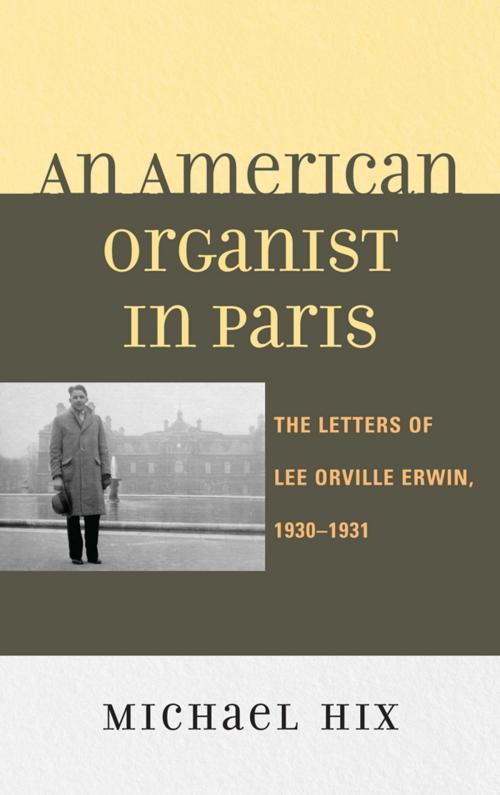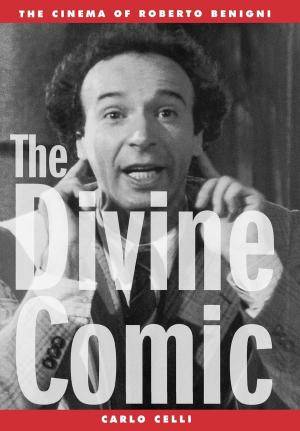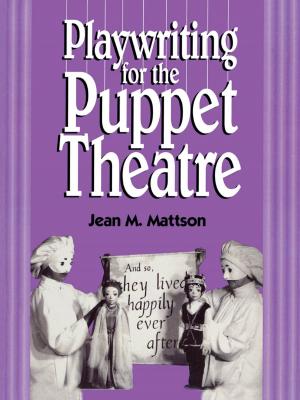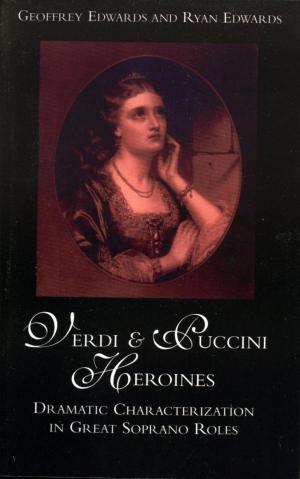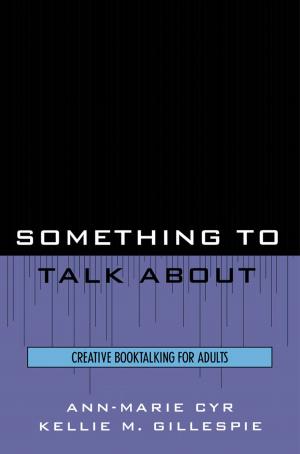An American Organist in Paris
The Letters of Lee Orville Erwin, 1930-1931
Biography & Memoir, Composers & Musicians, Nonfiction, Entertainment, Music| Author: | Michael Hix | ISBN: | 9780810883390 |
| Publisher: | Scarecrow Press | Publication: | May 4, 2012 |
| Imprint: | Scarecrow Press | Language: | English |
| Author: | Michael Hix |
| ISBN: | 9780810883390 |
| Publisher: | Scarecrow Press |
| Publication: | May 4, 2012 |
| Imprint: | Scarecrow Press |
| Language: | English |
Growing up in Huntsville, Alabama, during the first quarter of the 20th century, Alabama-born organist and composer Lee Orville Erwin, like many of the 20th century’s great American composers, spent time studying in Paris. From 1930 until 1931 Erwin studied in France with organist André Marchal and the harmony teachers Jean Verd and Nadia Boulanger. This formative experience greatly shaped his compositional style and aesthetic. Upon returning to the United States, Erwin began his lengthy career in radio and television working with Arthur Godfrey. In 1967, Erwin was commissioned by the American Theater Organ Society to compose organ music for the Gloria Swanson film Queen Kelly. It was this film that led his career back into the consoles of the great American theater organs. He toured extensively, playing thousands of concerts of organ music during silent film showings. He thus ushered in the silent film revival, continuing the genre of live music performance accompanying film. Erwin, believing that cue sheets originally compiled for these films during the silent film era were “full of the musical cliché’s of the 1920s,” composed new scores to over 100 silent films.
An American Organist in Paris presents Lee Orville Erwin's letters from France to his family in 1930-1931. In these letters, Erwin recounts his daily experiences and encounters with some of the 20th century's greatest musicians and teachers. He writes of his lessons with Marchal, Verd, and Boulanger and dinner parties with Olivier Messiaen. Erwin's letters not only provide the singular experiences of a young musician but also reflect the common experiences shared by the multitude of American composers who studied in France during this time. These letters are extensively footnoted to provide clarity and background information of the locations and personalities discussed. A biographical chapter on Erwin, which outlines his extensive musical career and impact on the silent film music revival in the 20th century, is also included. This book will serve as a unique glimpse into the life of one of America's most prolific composers for the theater organ.
Growing up in Huntsville, Alabama, during the first quarter of the 20th century, Alabama-born organist and composer Lee Orville Erwin, like many of the 20th century’s great American composers, spent time studying in Paris. From 1930 until 1931 Erwin studied in France with organist André Marchal and the harmony teachers Jean Verd and Nadia Boulanger. This formative experience greatly shaped his compositional style and aesthetic. Upon returning to the United States, Erwin began his lengthy career in radio and television working with Arthur Godfrey. In 1967, Erwin was commissioned by the American Theater Organ Society to compose organ music for the Gloria Swanson film Queen Kelly. It was this film that led his career back into the consoles of the great American theater organs. He toured extensively, playing thousands of concerts of organ music during silent film showings. He thus ushered in the silent film revival, continuing the genre of live music performance accompanying film. Erwin, believing that cue sheets originally compiled for these films during the silent film era were “full of the musical cliché’s of the 1920s,” composed new scores to over 100 silent films.
An American Organist in Paris presents Lee Orville Erwin's letters from France to his family in 1930-1931. In these letters, Erwin recounts his daily experiences and encounters with some of the 20th century's greatest musicians and teachers. He writes of his lessons with Marchal, Verd, and Boulanger and dinner parties with Olivier Messiaen. Erwin's letters not only provide the singular experiences of a young musician but also reflect the common experiences shared by the multitude of American composers who studied in France during this time. These letters are extensively footnoted to provide clarity and background information of the locations and personalities discussed. A biographical chapter on Erwin, which outlines his extensive musical career and impact on the silent film music revival in the 20th century, is also included. This book will serve as a unique glimpse into the life of one of America's most prolific composers for the theater organ.
